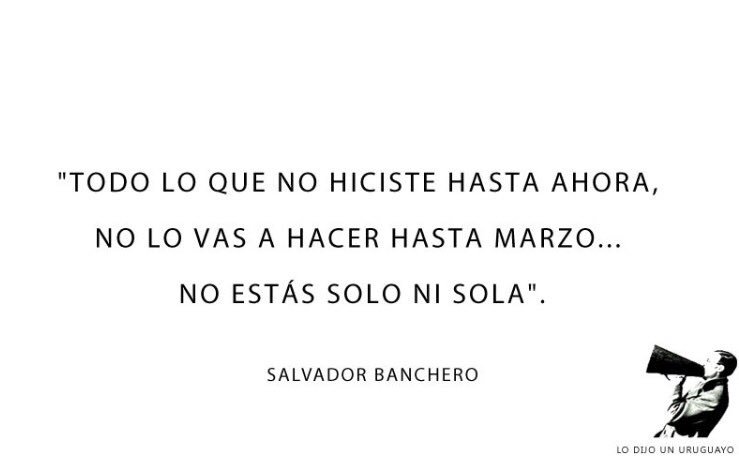#LaBajada is proving again a powerful hashtag on Twitter here in Uruguay. This article is all about explaining what it means – and why it should matter to you as a UK exporter.
We need some context first. In South America, particularly in the Southern Cone (I can speak for Brazil, Argentina, Chile, Uruguay and Paraguay), temperatures can reach 35-45 degrees in summer. Historically, schools and universities in Uruguay tend to stop from mid November or mid December through to, well, sometimes early February, sometimes mid March. Basically, summer holidays tend to be long.
Things have changed recently (damn globalisation) shortening these holidays, which are nonetheless still 8-12 weeks long for kids, those working at schools, and a lot of public servants who accumulate long period of annual leave (and who represent the majority of employment in our countries).
Things do slow down from about 20th December onwards. In the case of Uruguay, where I live and where #LaBajada comes from, this “slow down” (one of the ways of translating “bajada”) doesn’t last 6 weeks like in the UK and other “normal” countries but it can last up to 12 weeks, a whole three months. Hence the motto:
“don’t do now what you can leave until March”

It’s an exaggeration. Most of us, particularly in the private sector, have no more than 20 days of annual leave. However, there’s some truth in it:
– The most important comment here is that because people take month-long holidays in January and/or February (we also have Epiphany and Carnival to help our statutory leave stretch out), then it’s difficult for businesses to have all decision makers together during January or February, so they will delay anything non-critical, such as decisions about new suppliers.
– Banks do go awfully quiet in January and February which, again, doesn’t really help businesses.
– Public sector offices also slow down during this period which means paperwork is tricky (registration, customs, etc) but it also means that budgets not spent in 2016 are unlikely to be reactivated right from January 3rd, they will probably start becoming more real towards end of February (by the way, we all celebrate Epiphany on 6th January!)
– The judiciary have a long break (“feria judicial”) that will go from 25th December 2016 to 31st January 2017. Therefore, many lawyers and notary publics will take 3-4 weeks off during this time, too, which kind of halts our very bureaucratic country.
– Parliament also has a long break, this year it will go from 15th December to 1st March.
– Construction workers actually get two weeks off in December/January, the same two weeks for the whole sector.
I can tell you from experience that there is a “bajada” in Chile, Argentina, Brazil and Paraguay, and other Latin Americans agree that it happens to some extent also in fairly remote countries from us, such as Costa Rica.

By no means our countries stop (they just move by the sea!) and work continues, but it’s important to understand what kind of work continues and how, and what you can and can’t expect from current or potential South American contacts. My clients can certainly expect me not to take 12 weeks off! (now, thinking about it….!)
January and February are great months if you are in particular sectors (such as tourism and hospitality) for market research and great months for example for the sale of alcohol and food and drink (particularly if we add the Christmas and New Year rushes, and Carnival). They can also be good months for a quiet chat with clients and distributors, for planning the year and so on (a lot of businesses plan early in the year rather than late in December). My advice is to speak to your contacts and work this out as early as possible.
In the meantime, if just for a laugh, join #LaBajada on Twitter, confess: wouldn’t you like to have three-month siesta?
With thanks to @JusticiaRadio who came up with #LaBajada (the expression and the hashtag, not the habit, which is much older!), both pictures here are taken from their Twitter feed
